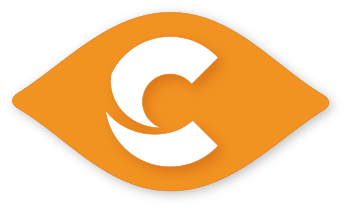In Practice: Royal De Ree Holland B.V.
Our users know Certifeye like the back of their hand. How does the platform help them with recurring administrative work? Today we give the floor to Paul Broersen and Eefje Peters- Elfering, respectively the Quality Manager and ICT Manager at Royal De Ree Holland B.V. They have been working with Certifeye since 2020 and are happy to share their story.
Royal De Ree Holland BV was looking for a simple tool to properly manage and control supplier certificates in one central location. The flower bulb specialist joined Certifeye in 2020, and developments in sustainability with the goal of purchasing 100% certified products by 2024 played an important role in this.
Royal De Ree Holland has specialized in the development, packaging and transport of top quality flower bulbs and related products for over 100 years. The company supplies various markets in more than 40 countries and is preparing for the legislation surrounding the Corporate Sustainability Reporting Directive (CSRD). The introduction of Directive means that from 2024 companies will be required to report on their impact on people and the climate . The Directive should ensure more transparency and better quality of information on sustainability.
Grip on certification
In Certifeye, Royal De Ree Holland manages various certificates: Global GAP, Global GAP IDA, MPS-GAP, MPS ABC and MPS SQ, FSC, PEFC, SEDEX, Skal, and the GRASP assessment. They come from suppliers of flower bulbs, plants, paper, cardboard, wood and plastic.
Paul Broersen, Quality Manager at Royal De Ree Holland: ‘ CSRD demands reliable data from the chain and flower bulb sector. With the number of certificates we process, we want to get a grip on this as much as possible through the certificate exchange and, in the future, perhaps also through writing out questionnaires to chain partners. Currently we are working on a data inventory for the CSRD: what information do we already have in-house and what information do we need to distribute?’
Manage and share certificates
Royal De Ree Holland used to collect information from its chain partners directly from MPS. ICT Manager, Eefje Peters: ‘The disadvantage was that we could not check on the day whether suppliers were still certified. The delivery on information was triggered in response to the products delivery once a year. That information wasn’t enough for us.’
‘With Certifeye we manage certificates in one central place. Growers can manage their certificates themselves via their Certifeye Wallet and share them with us. The system processes these automatic requests from growers who do not use it. This way we create a total overview and we can properly manage the end dates of certificates. When they expire, we automatically receive a signal and can therefore sound the alarm with our suppliers in time.’
Reducing administrative pressure
According to Eefje, suppliers’ reactions to the platform are mixed: ‘You have suppliers who join in immediately and you have suppliers who are reluctant to have any certificate information and related data recorded.’ ‘It is therefore not due to Certifeye, but rather to the entire certification process. Some growers still see it as an additional administrative burden. Paul: ‘Ultimately, Certifeye helps us keep an overview of where we are in the chain. This also makes it a good indicator of our goal to be able to purchase a 100% certified product by 2024. ‘
Eefje: ‘We hope that in the future Certifeye will become the platform where all growers in the flower bulb sector store their certificates and which will be used by everyone in th4e industry.’
Paul sees that more and more fellow exporters are joining the platform. ‘Because many growers have joined Certifeye at our request, other exporters can benefit from this and use the platform more easily. Certification simply requires registration and administration. We can’t take that away. But the more chain partners and sector peers join, the less administrative pressure for growers surrounding certification and the lower the threshold for sharing certificates is.’
CO2 Footprint Information Exchange
The demand to share information is becoming increasingly urgent for the floriculture sector, which means that the challenge of getting the right data to the right customer is increasing. Paul: ‘Each customer has specific wishes in the field of sustainability, the environment and certification. That makes it complex to pass on the right information to the next link in the chain.’
The number of requests to share information about matters such as crop protection and packaging is still not too bad at Royal De Ree Holland. ‘We know that those questions will come and Certifeye can also help to collect, manage and share that data. Royal De Ree Holland has been CO2 neutral certified for scope 1&2 since 2021 and is now also mapping the impact of the entire chain (scope 3). With the help of Certifeye we can extract this information from the chain.’
Paul: ‘The CSRD obliges us to do so. In the field of environmental and social affairs, customers are beginning to cautiously ask where we stand as a company and what information we do and do not have. We are already being asked to share information in a number of areas and that will only increase.
In the long run, we will therefore need more and more data. We already have a lot of general information with which we can fulfill part of our CSRD obligations. But the CSRD also asks for more and more specific and reliable data. We have been ISO 14001 certified since 1998 and we ensure that laws and regulations are implemented in our QMS. We are not surprised by the CSRD. Reporting on environmental matters is already in our system. The CSRD is an extension of that.’
Certification as an important indicator
‘Everywhere around you hear what society thinks about environmental and social matters. We give substance to those things. Certification is an important indicator for us to see where we stand in the flower bulb sector. We are also a Sedex member, which looks at the social conditions within our company and our chain.
From an entrepreneurial perspective, I say that there are too many laws and regulations on the table for these kinds of things. On the other hand, the CSRD is a good step towards being able to report transparently within Europe on environmental matters and social conditions within the chain.’



